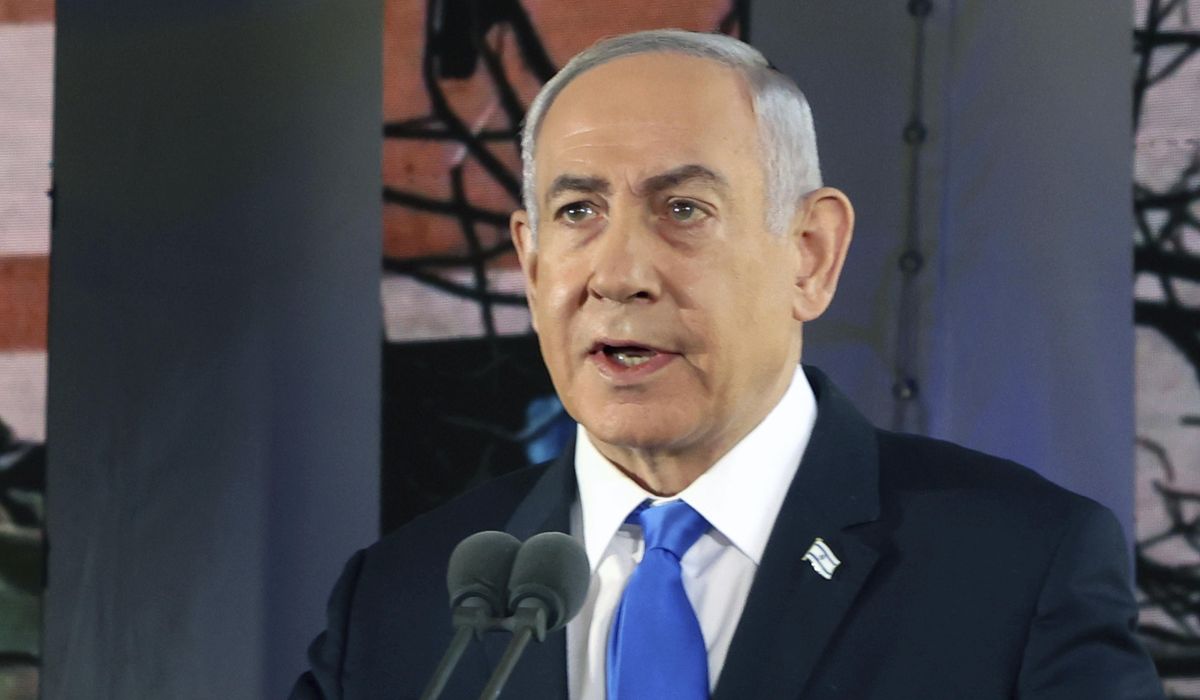


Israel’s Cabinet on Tuesday formally approved a ceasefire deal with Iran-backed Hezbollah forces shortly after Prime Minister Benjamin Netanyahu embraced the agreement, bringing at least a pause to more than a year’s worth of fighting along Israel’s border with Lebanon.
The agreement takes effect Wednesday and calls for a cessation of fighting for two months, although President Biden in remarks at the White House said U.S. officials are pressing to make it a permanent end to the latest border war between Israel and the powerful Lebanese Shiite movement.
Hezbollah began launching rockets and missiles at Israel on Oct. 8, 2023, a day after Palestinian Hamas militants launched their surprise rampage from the Gaza Strip. The fighting has killed more than 3,500 people in Lebanon and displaced thousands of residents from their homes along both sides of the border.
Tuesday’s events marked a rare day of progress for the Biden administration negotiators, who have struggled to keep the fighting sparked by the Oct. 7 attacks from escalating into a full-blown regional war, perhaps drawing Iran and its regional allies into the fight against Israel and the U.S. President Biden was set to deliver remarks on the deal from the White House Tuesday afternoon.
The specific terms of the agreement haven’t been released. The deal between Hezbollah and Israel also doesn’t affect the ongoing fight in Gaza, where U.S. efforts to negotiate a ceasefire that would also release dozens of hostages held by Hamas have so far failed to achieve a deal.
Mr. Netanyahu said Hezbollah has been badly battered in recent fighting, including the loss of virtually its entire leadership corps.
“This is not the same Hezbollah. Hezbollah chose to attack us from there on October 8. We set it back decades,” Mr. Netanyahu said Tuesday in an address to the nation. “We eliminated [Hezbollah leader Hassan] Nasrallah. We eliminated all the senior officials of the organization and thousands of terrorists.”
He said Israel Defense Forces troops have destroyed most of the rocket capabilities and military infrastructure Hezbollah constructed near the border.
“We reserve the right to use all forms of military force if Hezbollah begins rearming contrary to the agreement,” Mr. Netanyahu said, according to The Jerusalem Post.
The U.S. is expected to play a significant role in guaranteeing Israel’s security along its northern border with Lebanon as part of the ceasefire agreement. Israel’s Ynetnews reported Tuesday that a U.S.-led international enforcement committee would be set up to oversee compliance with the agreement that would see Israeli ground troops withdraw from southern Lebanon within 60 days of the ceasefire.
Meanwhile, Hezbollah’s forces would retreat north of the Litani River in Lebanon and troops from the largely sidelined regular Lebanese armed forces will take up positions replacing them.
A Pentagon official said U.S. military offices were “strongly supportive” of the ceasefire agreement between Israel and Hezbollah.
“We’re consulting closely with our interagency partners in terms of what potential contributions the [Defense Department] can make,” Maj. Gen. Pat Ryder, a Pentagon spokesman, told reporters. “This is something that [Defense Secretary Lloyd] Austin has talked about quite a bit. We’ve seen diplomatic means as key to enabling both Lebanese and Israeli citizens to return to their homes on both sides.”
• Mike Glenn can be reached at mglenn@washingtontimes.com.
